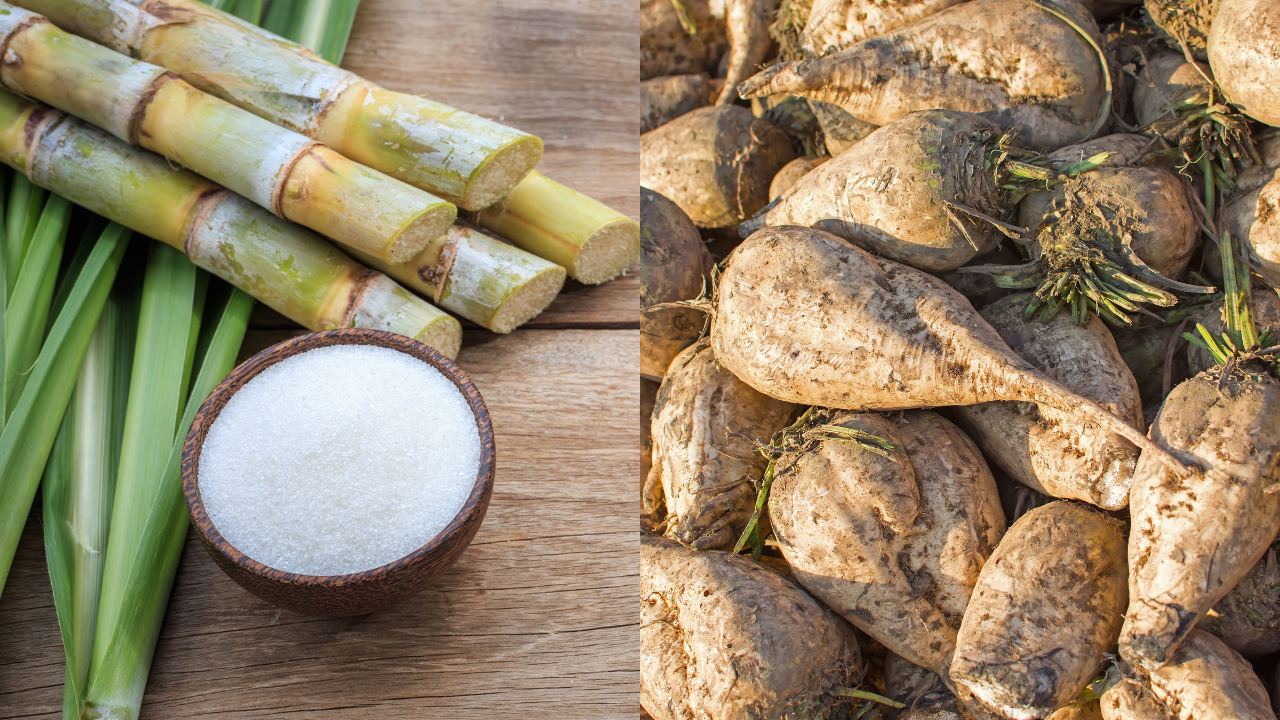Learning about beet sugar vs cane sugar can help bakers decide which fits their lifestyle better.
Learning about beet sugar vs cane sugar can help bakers decide which fits their lifestyle better.
Blog Article
Discover the Uses and Advantages of Beet Sugar Vs Cane Sugar in Your Daily Diet Regimen
Discovering the distinctive top qualities of beet and cane sugar reveals greater than just their sweetening capacities; it highlights their one-of-a-kind influence on wellness and cookeries. Beet sugar, understood for its refined taste, is often preferred in delicate treats, whereas cane sugar, with its hint of molasses, includes splendor to durable recipes. Each type holds its very own nutritional account and glycemic ramifications, welcoming a deeper understanding of their roles in a well balanced diet plan and sustainable intake techniques.
Origin and Production Procedures of Beet and Cane Sugar

The distinct environments and dirt types needed for growing sugar beets and sugarcane add to differences in their growing practices and geographic distribution, affecting the economics and sustainability of their production. beet sugar vs cane sugar.
Nutritional Comparison Between Beet Sugar and Cane Sugar
Despite stemming from various plants, beet sugar and cane sugar are nutritionally very similar, both mostly containing sucrose. Each supplies regarding 4 calories per gram, equating to about 16 calories per tsp. Structurally, both sugars are made up of roughly 99.95% sucrose, with minimal amounts of various other substances like dampness and trace minerals, which do not significantly change their nutritional profiles.
Ultimately, when selecting between beet sugar and cane sugar based on nutritional material alone, both offer identical benefits and downsides as they are essentially forms of the same molecule-- sucrose, offering fast power without other nutrients.
Influence On Health: Glycemic Index and Caloric Material
Discovering further into the results of beet sugar and cane sugar on health, it is crucial to consider their glycemic index and calorie content. The glycemic index (GI) of both beet and cane sugar is around 65, classifying them as high-GI foods, which can trigger quick spikes in visit this site blood glucose degrees.
Each sort of sugar consists of around 4 calories per gram, making their caloric material equivalent. For those monitoring calorie intake, specifically when taking care of weight or metabolic health conditions, understanding this equivalence is crucial (beet sugar vs cane sugar). However, excessive usage of any high-calorie, high-GI food can add to health concerns such as excessive weight, heart disease, and insulin resistance.
Environmental and Economic Considerations of Sugar Manufacturing
Beyond health effects, the manufacturing of beet and cane sugar likewise increases significant environmental and economic concerns. Sugar beet growing tends to require cooler climates and has a reduced geographical footprint contrasted to sugar cane, which grows in tropical areas.
Furthermore, the use of chemicals and plant foods in both beet and cane sugar cultivation can lead to soil destruction and air pollution, more affecting biodiversity and local water bodies (beet sugar vs cane sugar). The choice between cultivating sugar beet or read this cane often rests on neighborhood ecological conditions and economic factors, making the sustainability of sugar production a complicated issue
Culinary Applications and Taste Differences
While the environmental and economic elements of sugar production are without a doubt substantial, the choice between beet and cane sugar also affects culinary applications and taste accounts. Beet sugar, obtained from the sugar beet plant, is understood for its remarkably neutral preference.
Cane sugar, extracted site here from sugarcane, usually retains molasses traces, which impart a distinctive splendor and deepness. This small molasses flavor boosts the complexity of baked products, sauces, and marinades. It is especially preferred in things where a caramel undertone is desired, such as in brownies or gingerbread. The mild variant in wetness material between beet and cane sugar can impact the appearance and consistency of dishes, making cane sugar a preferred choice for specific recipes that benefit from its distinct homes.

Conclusion
In conclusion, both beet and cane sugar have unique origins and production procedures, using comparable nutritional profiles with mild distinctions in sodium web content and taste. While their effect on wellness, especially regarding glycemic index and calories, is comparable, the selection between them usually comes down to environmental, economic factors, and specific culinary needs. Understanding these facets can assist customers in making notified choices that straighten with their health goals and flavor choices.
Report this page